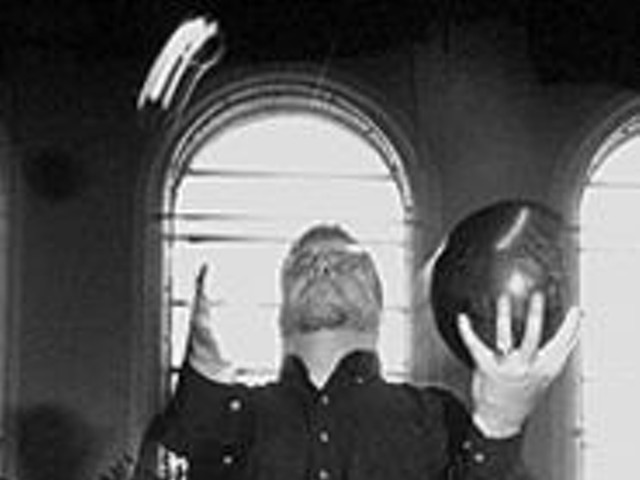Sheridan himself is an interesting fellow. The son of an actor and an author, he was educated with future lords and magnates at Harrow, but a youthful marriage turned him to the stage. His first play, The Rivals, appeared in 1775 and was so successful that Sheridan was able to buy the Drury Lane Theatre from David Garrick and become what the English used to call a manager -- part producer, part impresario. In addition to his career in the theater, Sheridan was a successful politician.
The School for Scandal proves why Sheridan's other career was natural. Its complex plot includes two brothers, one a profligate and the other a hypocrite of the worst sort, contending for the same young woman. There's also an older man having troubles with his much younger wife, and a rich uncle must select one of two nephews as his heir. Interfering everywhere with the most malicious gossip are the scandalmongers -- a coven of men and women who, out of boredom or unmotivated spite, try to destroy the lives of their innocent peers. Though the virtuous or sort-of-virtuous triumph and the vicious get their comeuppance, The School for Scandal ends with much the same ambiguity as Molière's Tartuffe: Luck, not justice, has triumphed. The comedy conceals a moral melodrama wherein the posse might not have arrived on time and the train could easily have bisected Little Nell.
Save for two servants, all the characters are gentry or minor nobility. They are creatures of leisure: Most have no business to transact, no one to please but themselves. They have no children, only wards or nephews. This milieu of barren idleness hovers behind almost every action of the play. Of the three completely decent characters in the play, one is a middle-class man-of-business for three other characters, another has only recently returned from a 16-year business trip and the third is a young woman -- scarcely more than a girl -- of unaffected principle. It is also important to recognize that Sheridan evokes an aura of degeneracy without any sexual action that might bring a blush to the most sensitive cheeks; there is no violence. Bad behavior like selfishness and untruthfulness concerns us, and if our fiction and theater would return to consideration of such matters, perhaps they'd become more interesting and more useful.
The strong cast (but then, all Conservatory productions have strong casts) is headed by James Andrew Butz as Mr. Joseph Surface, a canting hypocrite whose purposes include ruining the name of his younger brother, Charles (Dallas A. Amsden); marrying an attractive, wealthy and intelligent heiress, Maria (Mika Porro); and seducing Lady Teazle (Aubrey Breneman), the young wife of the much older Sir Peter Teazle (Kern McFadden). Butz makes Joseph Surface genuinely frightening, not only by cloaking his interpretation in an aura of palpable nastiness but by making him seem so intelligent. Breneman -- a tall, slim, beautiful woman -- is a wonderful comedienne with fluent body language. When she squabbles with her elderly husband, Breneman seems driven to it by his insistence that she crawl, and when she is terribly compromised by Joseph Surface's malignity, she projects a pitiable, heartbreaking shame. It is also mournful to realize that McFadden is graduating this spring and St. Louis will lose its most accomplished creator of comic old farts.
Bruce Longworth's direction is assured and competent. He has seen the play's unity and never allows his actors to disrupt it or his audience to escape it. The 14 scenes follow one another seamlessly (because of the able work of scene designer Scott C. Neale and the lighting of Sarah Duncan), and when the characters surprise us, Longworth has made sure the audience is emotionally and intellectually prepared for the surprise.
The only choice Longworth has made with which one quarrels is his decision to use British accents. This creates two problems: First, the young actors, especially the women, have consistent problems with clearly enunciating their lines and speaking limey at the same time. Second, despite dialect coach Bill Lynch's help, the young actors don't do the accents well, and Midwestern American vowels creep in to undermine the posh stage British. "Well," theater folk say, "it was meant to be pronounced that way." Not true -- late-18th-century upper-class British English was wildly various: Oxbridge and Mayfair had yet to appear. American dialects do just as well as British in performing the classics, including Shakespeare -- better, in fact, when young American actors are playing the parts.
Despite this almost major error, however, Webster Conservatory's School for Scandal possesses vastly entertaining sweetness and amusingly instructive light. Remember that evening performances begin at 7:30, and don't be late.





